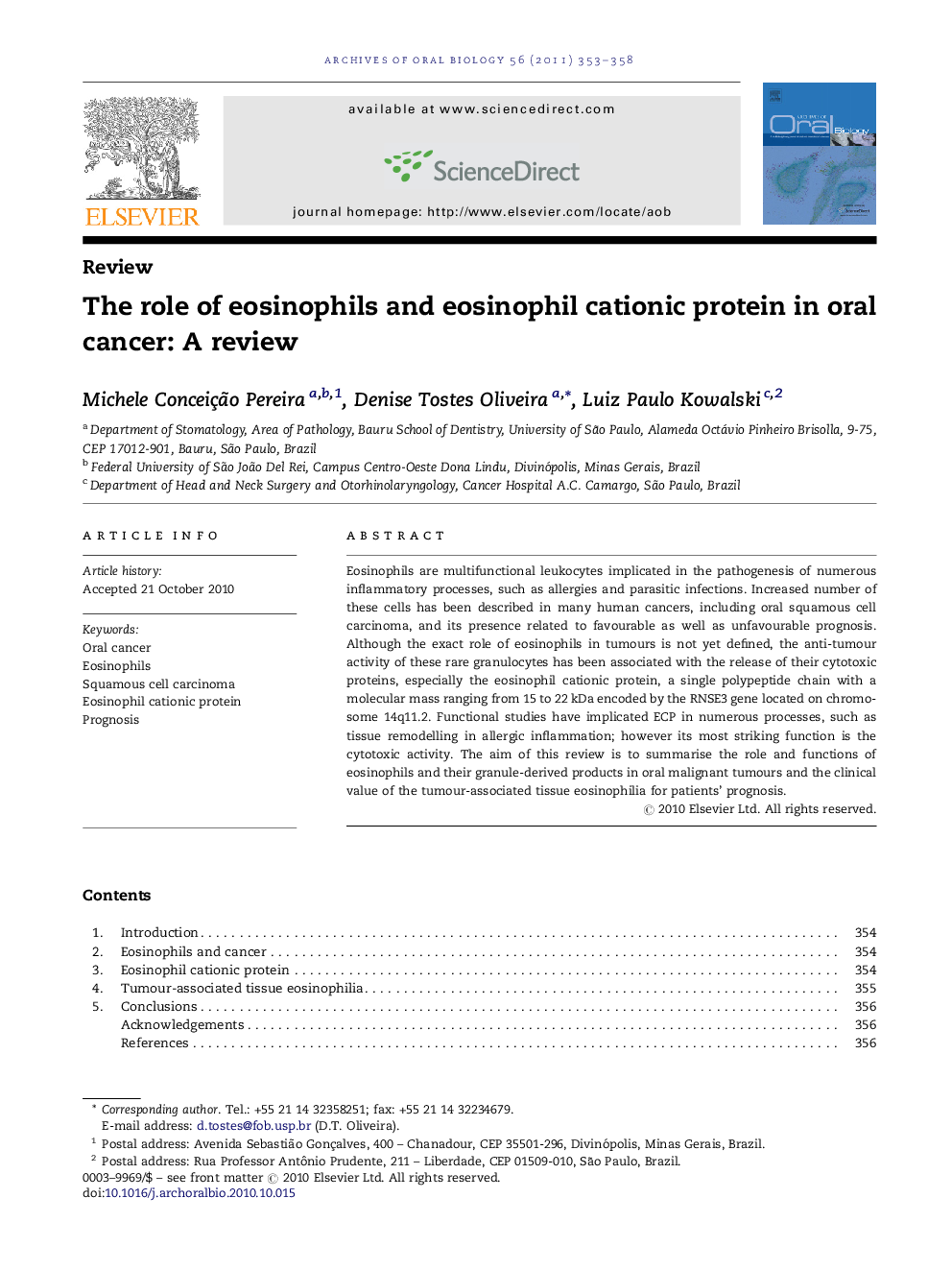| Article ID | Journal | Published Year | Pages | File Type |
|---|---|---|---|---|
| 6051831 | Archives of Oral Biology | 2011 | 6 Pages |
Abstract
Eosinophils are multifunctional leukocytes implicated in the pathogenesis of numerous inflammatory processes, such as allergies and parasitic infections. Increased number of these cells has been described in many human cancers, including oral squamous cell carcinoma, and its presence related to favourable as well as unfavourable prognosis. Although the exact role of eosinophils in tumours is not yet defined, the anti-tumour activity of these rare granulocytes has been associated with the release of their cytotoxic proteins, especially the eosinophil cationic protein, a single polypeptide chain with a molecular mass ranging from 15 to 22Â kDa encoded by the RNSE3 gene located on chromosome 14q11.2. Functional studies have implicated ECP in numerous processes, such as tissue remodelling in allergic inflammation; however its most striking function is the cytotoxic activity. The aim of this review is to summarise the role and functions of eosinophils and their granule-derived products in oral malignant tumours and the clinical value of the tumour-associated tissue eosinophilia for patients' prognosis.
Related Topics
Health Sciences
Medicine and Dentistry
Dentistry, Oral Surgery and Medicine
Authors
Michele Conceição Pereira, Denise Tostes Oliveira, Luiz Paulo Kowalski,
